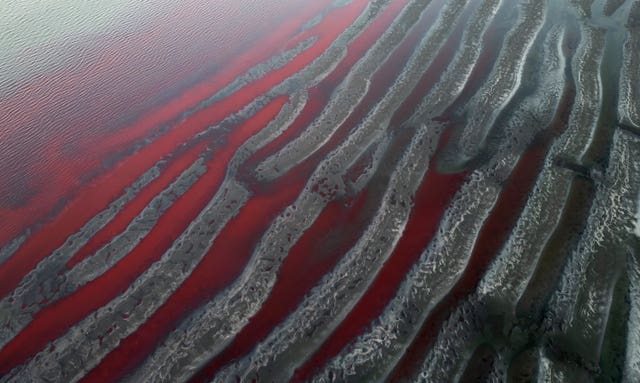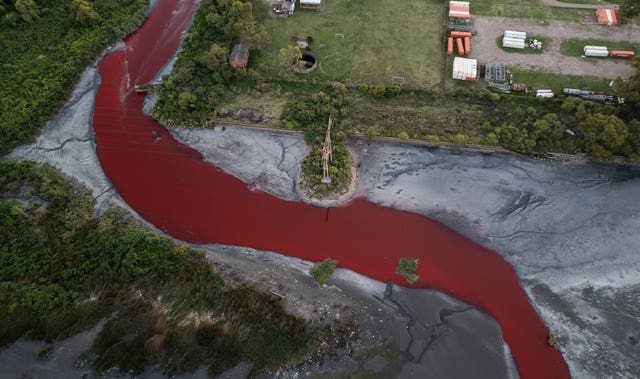Argentinian waterway ‘looks like a stream of blood’ amid pollution fears
Images of the blood-red waterway captured by residents quickly spread on social media.

A waterway winding through a populous area on the outskirts of Buenos Aires has turned bright red, sparking fears of industrial chemical dumping.
The Sarandi stream, near Villa Inflamable, in the municipality of Avellaneda, is home to tanneries and other industries that transform animal skins into leather using chemicals.
Images of the blood-red waterway captured by residents quickly spread on social media, evoking apocalyptic imagery.

Maria Ducomls, a local resident, described waking early one morning to powerful odours.
“At 5.30am, we already had a special and hazardous waste incinerator spewing pollutants into the air,” she told The Associated Press.
Shortly afterwards, she noticed the stream. “It looks like a stream of blood, we have never seen it like this,” she said.
Officials from the municipality of Avellaneda, about nine miles south of the Argentinian capital, suspect the presence of aniline, a toxic substance used in dyes and medicines.

Following the collection of water samples, they filed a complaint with the Buenos Aires province ministry of infrastructure and public services, which will lead an investigation.
Residents report that the stream has exhibited various unusual colours in the past — grey, green, violet, blue and brown — often with an oily surface.
They say they have been filing complaints against local businesses since the 1990s, with several cases of alleged environmental contamination still open.





